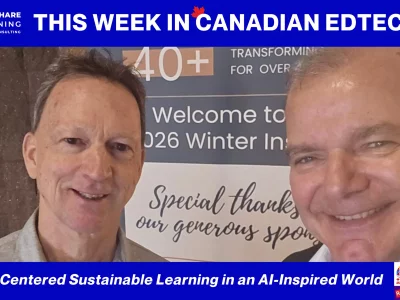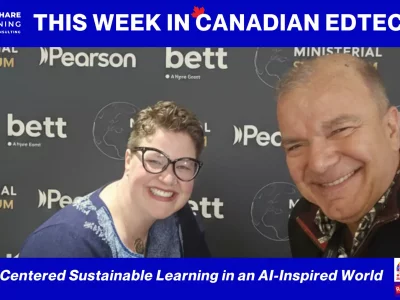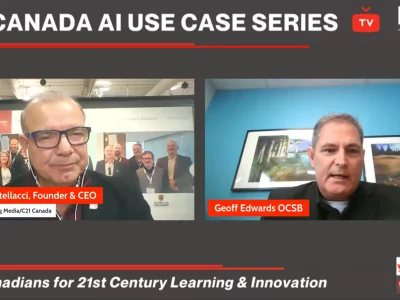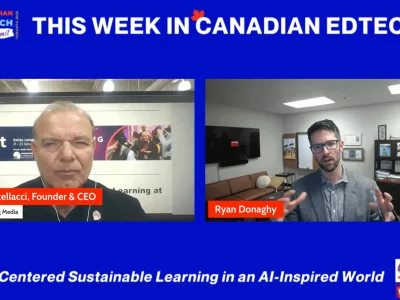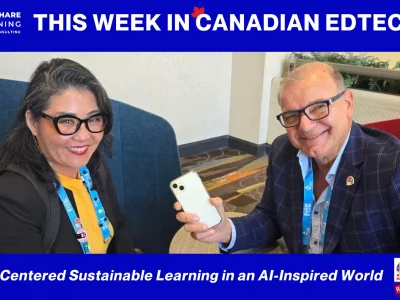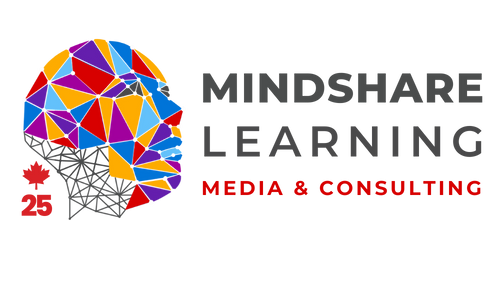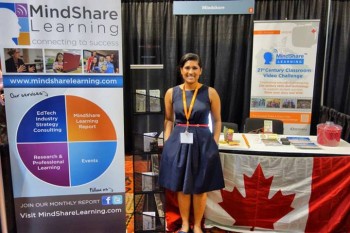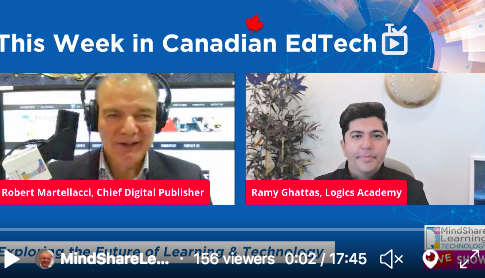With the rapid integration of technology into our classroom programs, students now have ubiquitous access to information using tools like iPads, Google, and blogging. They are digitally curious, motivated to take risks, and there is so much potential for rich collaboration. So how are we as educators leveraging the power of technology to improve student achievement, and maximize student outcomes (communication, collaboration, creativity, critical thinking and problem solving, citizenship and character) to transform our students into next generation learners? I believe that some of the key elements necessary for this transformation are opportunities for personalized learning, global collaborative learning, and sharing.
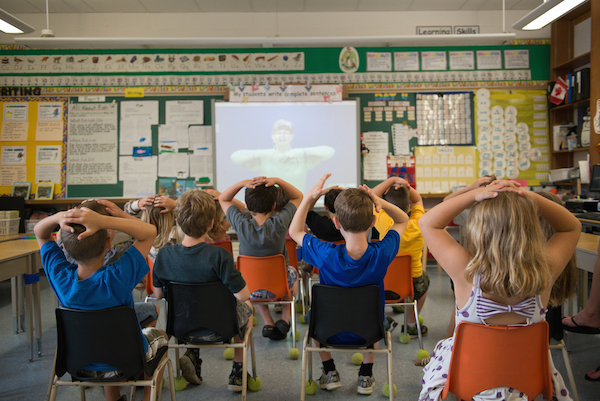
Leigh Cassell’s grade 1/2 class at Stephen Central PS video conferencing with dHL meBook Expert Karin Davidson-Taylor from Royal Botanical Gardens.
Blogging
Take for example the AMDSB Technology Learning Community – a group of passionate AMDSB educators who are personalizing learning for students by providing opportunities for them to create and cultivate their own individual blogs. By choosing blogging as a form, and purpose for writing, over 2500 AMDSB students now have opportunities to engage in collaborative inquiry-based learning partnerships with each other, and global learning partners to start conversations, find answers to their questions, document and share their learning, reflect, make a difference, and drive change. Blogging as pedagogy is about engaging students in purposeful and authentic writing in digital spaces with a global audience. It’s about finding new ways to improve on the quality of our conversations by creating opportunities for teachers and students to collaborate and problem solve with a global audience, think critically about our thinking, and document our learning journey. It is about reciprocating with an emphasis on quality, coupled with authentic experiences to read, write, comment, reflect and connect in digital spaces, while observing digital citizenship responsibilities and rights. It is about making learning and thinking visible, searchable and available to others. It’s personalized learning where sharing is not in addition to the work – it is the work.
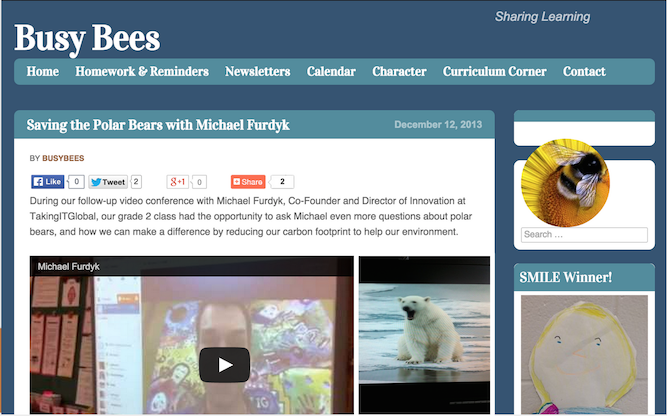
The Busy Bees blog is one of over 2500 blogs in the AMDSB connecting kids with global learning partners
Digital Human Library
One of the ways we connect with global learning partners to create these dynamic networked learning communities is through the Digital Human Library (dHL). The Digital Human Library is a free educational resource that connects Canadian teachers and students with hundreds of organizations and experts from around the world who are delivering interactive-curriculum based programs using video conferencing technology. Collaborating with dHL meBook Experts introduces students to new people, places, and experiences, and provides them with opportunities to build relationships with a variety of global learning partners. As a result of these experiences, students gain a better understanding of their learning as it applies in the world beyond the school, while at the same time developing the interpersonal skills they need to be successful. What’s more, the experience of learning the curriculum in these wider digital contexts immerses students in the New Literacies, and creates opportunities for them to collaborate with people they might aspire to work with someday. Global collaborative learning is all about building relationships.
Sharing
One of the skills required to achieve success when personalizing learning through blogging and collaborating with global learning partners is the necessity of sharing. Collaboration is only made possible by an individual’s willingness to share. So if we teach students the value of sharing by way of networked learning experiences, and encourage students to find creative ways to introduce others to ideas that are of interest to them – ideas that offer inquiry potential, then we are teaching our students the foundational skills they need to be collaborators. It is then our responsibility to be responsive to our students’ learning needs by supporting their creative problem finding and problem solving as facilitators, skill developers, questioners, and critical cheerleaders as we connect our students to each other, global learning partners, and the world.
What do you believe are the key elements necessary to transform your students into next generation learners?
—
Leigh Cassell is an AMDSB Technology Coach and Founder of the AMDSB Technology Learning Community. For the past 10 years Leigh has been teaching students in the primary and intermediate grades, with a focus on using new innovative technologies effectively to create global connections for learners, improve student outcomes in the areas of 6C’s, and prepare students to succeed as next generation learners. Leigh is an Apple Distinguished Educator, SMART Certified Interactive Teacher, certified Google Educator, and Founder of the Digital Human Library.
